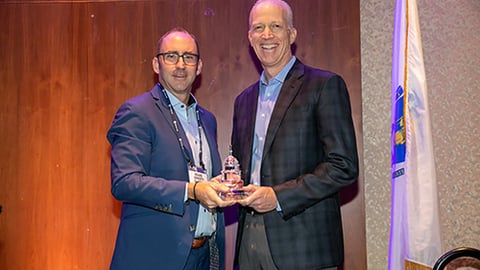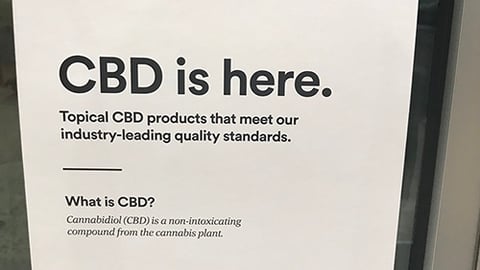Having a Voice in Important Supply Chain Issues
As the saying goes, all politics is local. That couldn’t be truer than in the present time, when environmental activists often have the loudest voices in persuading legislators to consider new laws that impact both cities and states.
Luckily for grocers, state trade associations are serving a powerful purpose by weeding through new legislation to find the measures that will hit retailers most significantly, and ensuring that their members’ voices are heard in political discussions.
Key Takeaways
- State trade associations weed through new legislation to find the measures that will affect retailers the most, and ensure that their members’ voices are heard in political discussions.
- Pertinent issues affecting retailers in several states include recycling, plastic bag bans, cap-and-trade programs on petroleum, and other environmental issues, as well as sweetened beverage taxes.
- Since grocery stores are critical to neighborhoods, there needs to be some consideration about the effect of a proposed mandate on a food retailer’s ability to open or remain in a particular area.
Progressive Grocer recently caught up with leaders from three state trade associations – California Grocers Association, Vermont Retail and Grocers Association, and Illinois Retail Merchants Association – to hear about some of the latest regulatory issues coming down the pipeline and how their groups have made a difference for their retail members. Not surprisingly, multiple states are often facing the same kinds of challenges – many of which directly affect the retail supply chain.
California: Big State, Big Issues
Ron Fong, president of the California Grocers Association (CGA), based in Sacramento, jokes that many of his colleagues around the country see him as the “man with the crystal ball,” because so much legislation starts in California before it eventually makes its way to other states. In fact, in California’s latest legislative session, which ran Jan. 2-Sept. 13, 2019, there were a jaw-dropping 2,500 bills introduced.
New rules related to improving California’s environment continue to lead the trend in the state, and Fong counts newly passed legislation, Assembly Bill 54, as a recent success story for CGA. The bill was designed to deal with an old law originally passed in the 1980s that requires grocery stores to accept consumers’ recycling in their stores when they no longer have recycling centers available in their parking lots.
Due to a major change in how plastic bottles have been received in recent years (there’s essentially no more money in plastic bottles anymore, especially since China has stopped buying them from the United States, explains Fong), California’s largest recycling company recently shut down all of its centers in the state. So that meant that by default, California grocers were required to accept consumers’ recycling in their stores.
“This posed a big, big problem for us, because recycling has changed from 20 years ago,” notes Fong. “Now you have people bringing in garbage bags essentially full of trash and dirty needles and plopping them down on our checkstands where we sell produce and meat. So it poses a food safety and health threat.”
CGA sponsored AB 54, which provides grocers a temporary reprieve from the law through next year, giving them time to sit down with all stakeholders to come up with a better way to set up recycling. “Thankfully, because we have a great government relations team, we were able to convince the legislature that that’s not the right answer and that we are good citizens who just want to find a better model,” says Fong.
CGA was also part of the discussion several years ago on another big environmental issue, when the state was weighing the impact of plastic T-shirt bags on oceans and waterways, and eventually chose to ban them. While CGA didn’t have a firm position on whether to ban the bags, the association’s top priority had been to try and keep local laws as similar as possible, especially since many of its members operate stores in more than one jurisdiction, according to Fong.
“It’s very confusing for customers to go to one store and hear they can’t have a plastic bag, but then go to another store not too far away and hear that they can,” he says. By 2012, the association decided that this had become such a big topic that it was time to sponsor a statewide bill so that there would be one law for everybody. The law was signed and put into place four years later, in 2016.
Fong says that the law, which bans plastic T-shirt bags and charges customers 10 cents to use a paper or reusable, thicker plastic bag if they don’t bring their own bag, has proved to be a successful model. “We’ve seen bag usage in general reduced anywhere from 60% to 80%,” he notes. “But it has taken a few years. The first year was rough because consumers needed to change their behavior and remember to bring their own bags. Now we as grocery stores are able to reduce our carbon footprint. I think other states will learn from us.”
While laws such as these are ultimately helping grocers become more sustainable, they also bring with them a particular challenge to retailers’ supply chains, observes Fong. “It’s one thing for legislators to write these laws. It’s another thing to see if our supply chains can supply us with the intended substitute product.
"For instance, right now the local laws have moved to looking at banning plastic containers in grocery stores and other retailers, but currently there’s not a good alternative. We’ve seen a cardboard alternative, but there’s no scale on that yet. And if you think about meat and fish, nobody is making a compostable meat tray. Our point to legislators is OK, study these things, but don’t penalize grocers if there’s no alternative.”
Greening the Green Mountain State
Vermont is another state that’s seeing more regulations tied to sustainability. Erin Sigrist, president of the Vermont Retail and Grocers Association (VRGA), based in Berlin, Vt., says that her group is learning to work together with government, even on issues that on the surface look like they may negatively impact the industry, so that they have a say in how laws are written.
In fact, the state just established its own plastic bag ban during its latest legislative session. While VRGA has been opposed to such a ban for at least eight years, the group and its members saw that the trend was gaining traction throughout the country and would likely be inevitable for Vermont.
“So we decided to get on board and have a say in what the legislation looks like,” notes Sigrist. “Is every retailer happy? No. Is it a perfect law? Absolutely not. But we showed up to the table and made some really good progress, and now we have that open line of communication so that we can continue to move forward with regulators and legislators in a way that I think will allow us some say in what it looks like in the end.”
She adds that Vermont’s bill has been deemed the most comprehensive plastics ban bill in the country. It not only bans plastic bags, but also plastic stirrers that are typically used in coffee, as well as polystyrene. Additionally, retailers and food establishments are prohibited from providing straws unless the customers ask for them. The bill also mandated a working group that has been tasked with considering the waste stream in Vermont, and how to eliminate single-use products as much as possible.
Another environmental issue being floated around Vermont is a potential cap-and-trade program on petroleum, says Sigrist. “Lawmakers are questioning whether to impose additional costs on the gas used to power trucks, including the trucks that deliver food,” she notes. “There are only a few ways you can make up for that cost, and ultimately it will increase prices to the consumer. So that’s one conversation we’re having not only with petroleum distributors, but also with retailers and food distributors.”
California already has a current cap-and-trade law in place, and several large grocery chains – including Safeway and Kroger – have reacted by proactively setting their own green energy goals and looking for renewable sources of energy, observes Fong. “This is forcing people to look at their own operations,” he says.
Midwest Mandates
While Illinois hasn’t seen quite as many regulations dealing with the environment, the state is also mulling what to do about plastic bag waste – and the Springfield-based Illinois Retail Merchants Association (IRMA) has been there to represent retailers’ points of view.
In Chicago, a ban on thin plastic bags was implemented in 2015, but in some ways it put more plastic into the environment, according to Tanya Triche Dawood, VP and general counsel of IRMA. “Many consumers were getting the thicker plastic bags, so it was more like a swap,” she says. In 2017, the city changed the ban to include a 7-cent fee on all checkout bags instead. “That got folks to think about whether they wanted to use less bags and bring their own bag, which is ultimately what you want them to do,” notes Dawood.
Beyond environmental issues, Dawood says she’s concerned that the “constant piling on of mandates,” whether it be in the labor space, taxes or other areas, will ultimately have a negative impact on retailers’ viability. “In Chicago, retailing is extremely competitive,” she explains. “Independent grocers have made great strides at being successful in this environment, but I’m concerned about the impact from so many mandates.”
In her view, that’s why trade groups are so important in political discussions.
“One of the ways to start addressing this in a real way is to make sure that when lawmakers are making decisions about more regulations, and adding more costs to doing business, that they have a better understanding of how their decisions will impact individual neighborhoods. Grocery stores are critical to neighborhoods, so there should be some real consideration about how each mandate is going to impact the likelihood of whether or not you’re going to get more grocery stores in every neighborhood that wants them.”
Dawood believes that it’s more important now than ever for grocers to get involved with their local governments and state associations. “Things happen on a local level early and often," she points out. "There’s no time like the present to join together with like-minded people who are in your business and have a voice at your local city hall, the town board and the state legislature. Other communities are banding together and have a voice, and if you aren’t at the table you’re on the table.”
- Go on Summer Retreat
Every year, the Food Marketing Institute (FMI) brings together retail trade associations and grocery professionals from each state to discuss legislative issues at its State Issues Retreat.
“With gridlock at the federal level in Congress, state and local issues continue to grow in importance in the public policy arena – including local ordinances, state legislation and ballot initiatives,” notes Jennifer Hatcher, chief public policy officer at Arlington, Va.-based FMI.
At the annual retreat, Hatcher says, attendees explore critical industry issues in depth and share ideas to prepare for the upcoming legislative sessions. “Providing our members with a forum to deep dive into emerging issues with industry experts has allowed us all to be more effective at the state and local level," she says. "As food retailers, many aspects of the business are regulated at the state or local level, and many of those same public policy issues also have the potential to transition to the federal level.”
At this year’s retreat, Tanya Triche Dawood, VP and general counsel of the Springfield-based Illinois Retail Merchants Association, received the Donald H. MacManus Award in recognition of her achievement in public and regulatory affairs. One of Dawood’s most impressive accomplishments was working to help repeal the Cook County sweetened-beverage tax.












